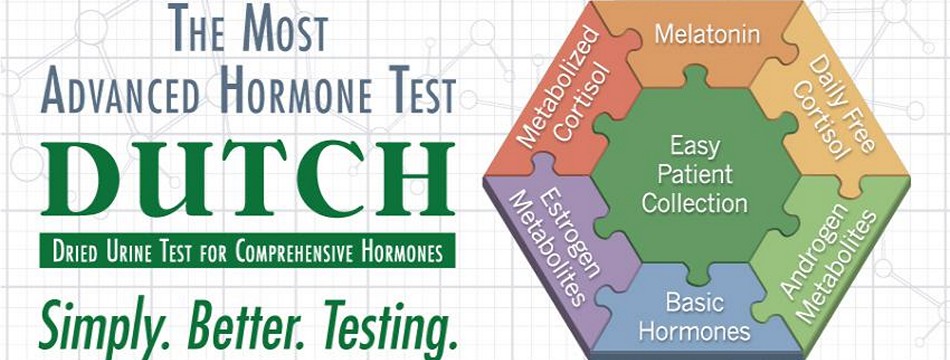By Dr. Jessica Liu, ND
Very often in m y fertility practice, I see couples struggling to find the ‘why’ behind their fertility challenges. They go through a battery of tests at a fertility specialist’s clinic, only to be told that everything is normal and that their diagnosis is ‘unexplained fertility’.
y fertility practice, I see couples struggling to find the ‘why’ behind their fertility challenges. They go through a battery of tests at a fertility specialist’s clinic, only to be told that everything is normal and that their diagnosis is ‘unexplained fertility’.
Naturopathic fertility care offers a different approach where we see an inability to conceive as a confluence of many factors, where the body functionally is compromised in its ability to maintain healthy physiology. It makes my job as a fertility ND that much more challenging to find the ‘why’ lying beneath an unexplained fertility diagnosis.
Now, we have an advanced tool to explore every aspect of the very complex relationship of hormonal pathways in the body. It’s called the DUTCH Test, which stands for Dried Urine Test for Comprehensive Hormones and it is the most comprehensive test available for exploring hormonal dysregulation that cannot be achieved in standard blood tests alone.
Why are standard blood tests not enough?
Blood testing for hormones is the standard of care in fertility medicine. However, blood hormone levels are just a small snapshot of circulating levels at a given time, and do not reflect total daily hormone levels and how those hormones are being metabolized in the body. Hormones in blood are bound to a binding protein called sex hormone binding globulin, which dependent on whether a patient has a high or low level of this binding protein can mask a functionally low hormone status.
In addition, some hormones, like the stress hormone cortisol, exhibit a diurnal pattern, thus a single blood test cannot demonstrate whether a patient is presenting with a healthy daily hormonal rhythm. The DUTCH test, on the other hand, provides the opportunity for testing at 4-5 different times of the day which can allow for examination of an entire day’s output and more importantly, because it measure the metabolites of the hormones, can determine whether the hormones are being utilized effectively by the body.
Deciphering the results of the DUTCH Test
When I get to see exactly how a patient’s hormones are working in the body (how much is truly being made, what is stored, how it is being cleared), this is what gets me excited about treating fertility and other hormonal issues! It’s like finally finding the key to a complex puzzle and you have an exact map of how to effectively reach a solution!
Here is an example of how the DUTCH test can provide much deeper information in a fertility case:
‘Sarah’ (name changed for privacy) was a 36 year old female who came to my office for help with unexplained infertility. She had regular cycles but they tended to be long at 46 days and very heavy and painful. On blood testing, it showed her hormones  were all in the normal range. With DUTCH testing, we were able to see that although her cortisol (stress hormone) levels were within normal, her cortisol clearance was extremely poor, leaving her body essentially in a chronic state of cortisol overload for the entire day. She also had poor conversion of estrogen to its most benign metabolite, which could explain her heavy periods. Her progesterone levels were also very low, which could have been affected by the poor cortisol clearance.
were all in the normal range. With DUTCH testing, we were able to see that although her cortisol (stress hormone) levels were within normal, her cortisol clearance was extremely poor, leaving her body essentially in a chronic state of cortisol overload for the entire day. She also had poor conversion of estrogen to its most benign metabolite, which could explain her heavy periods. Her progesterone levels were also very low, which could have been affected by the poor cortisol clearance.
With this new information, we were able to help her liver metabolize cortisol and estrogens more effectively using specifically selected nutrients and herbs and helped her have much less painful periods and normal ovulatory cycles of 32 days in length. In 4 months, she was happy to report she was pregnant and 9 months later, conceived a bright and vibrant little girl!
The DUTCH hormone test is a simple, take home test that is very easy to use and is considered the most advanced hormone test available. It can be extremely useful in determining the root hormone imbalances for conditions such as endometriosis, PCOS, menopausal symptoms and menstrual issues. It is also an important way that I can monitor patients who are taking hormone replacement therapy. I am extremely happy to be able to have this incredible tool to offer to my patients with hormonal imbalances or fertility challenges.
References:
- https://www.precisionhormones.com/. Click on this video to learn more:https://www.precisionhormones.com/?q=content/video-ii-testing-adrenal-hormones-dutch-0
- Is Cortisol Excretion Independent of Menstrual Cycle Day? A Longitudinal Evaluation of First Morning Urinary Specimens. https://www.ncbi.nlm.nih.gov/pmc/articles/PMC3069066/
- Effects of psychological stress on male fertility https://www.nature.com/nrurol/journal/v12/n7/full/nrurol.2015.112.html
